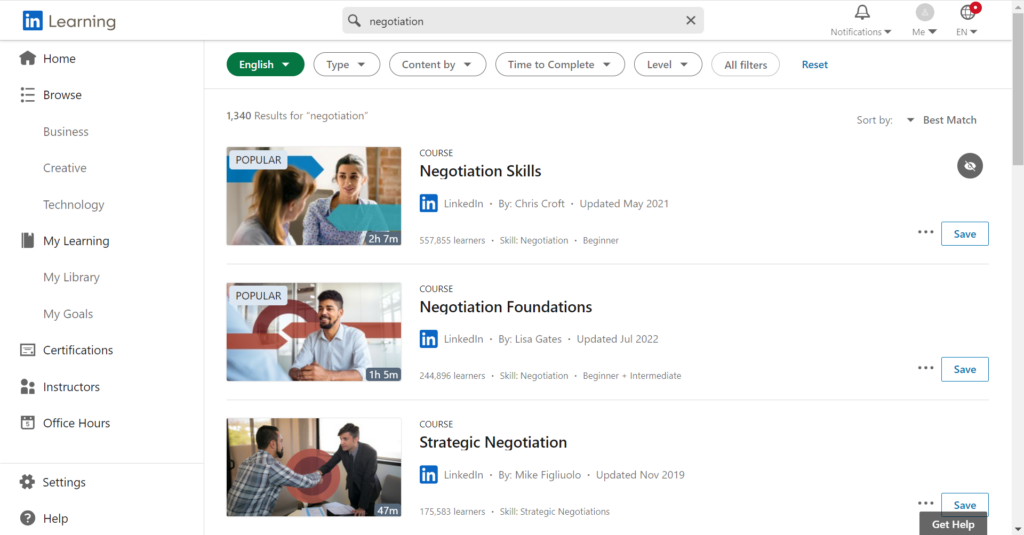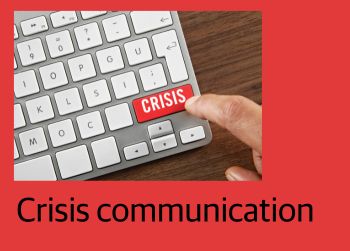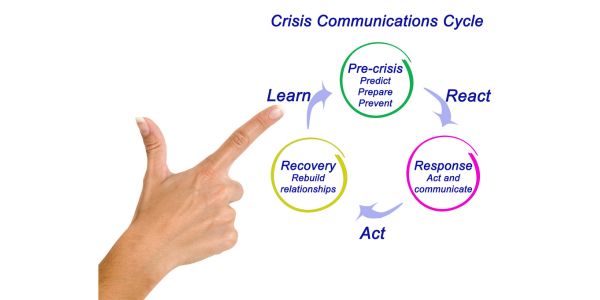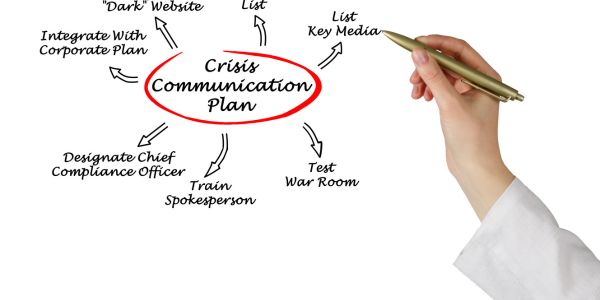Negotiating. Getting to yes. Driving a hard bargain. Win-win.
We all do it. It’s part of navigating daily life.
It could be with ourselves: “If I go to the gym I can treat myself to an icecream on the way home”
It might be with our kids: “You can watch that movie AFTER you’ve done your homework”
It may be with our significant others: “We’ll have Christmas with your family IF we can spend New Year with mine.”
Negotiating for a satisfactory outcome can be a job in itself – for instance, a contract manager negotiates with suppliers for a mutually beneficial supply arrangement, while a union official negotiates work conditions on behalf of organisational members.
But for most individuals it’s often much harder to negotiate in the workplace particularly when it comes to situations such as getting a place on a project team or asking for a pay rise.
Like so many necessary work skills, negotiation techniques can be learned with the help of a few library resources.
In the blog post, The Fundamentals of Negotiation, the author sets out five things he feels must be done to to build a strong foundation as a successful negotiator .
In her TED talk, Australian researcher, organizational psychologist and university professor, Ruchi Sinha outlines three key steps to help you successfully master negotiation through the building of relationships.
There are a number of courses available on LinkedIn Learning accessible via the Wellington City Libraries website.
Using your library registration sign into LinkedIn Learning and type “negotiation” or “negotiating” into the search box and select from the options.

There’s also plenty of material in our book collection. Below we’ve compiled you might find helpful :
Influence is your superpower : the science of winning hearts, sparking change, and making good things happen / Chance, Zoe
“You were born influential. But then you were taught to suppress that power, to follow the rules, to wait your turn, to not make waves. Award-winning Yale professor Zoe Chance will show you how to rediscover the superpower that brings great ideas to life. Influence doesn’t work the way you think because you don’t think the way you think. Move past common misconceptions—such as the idea that asking for more will make people dislike you—and understand why your go-to negotiation strategies are probably making you less influential. Discover the one thing that influences behavior more than anything else. Learn to cultivate charisma, negotiate comfortably and creatively, and spot manipulators before it’s too late. Along the way, you’ll meet alligators, skydivers, a mind reader in a gorilla costume, Jennifer Lawrence, Genghis Khan, and the man who saved the world by saying no. Influence Is Your Superpower will teach you how to transform your life, your organization, and perhaps even the course of history. It’s an ethical approach to influence that will make life better for everyone, starting with you.”–Publisher.” (Catalogue) E-book format
HBR guide to negotiating / Weiss, Jeff A.
“Forget about the hard bargain. Whether you’re discussing the terms of a high-stakes deal, forming a key partnership, asking for a raise, or planning a family event, negotiating can be stressful. One person makes a demand, the other concedes a point. In the end, you settle on a sub par solution in the middle if you come to any agreement at all. But these discussions don’t need to be win-or-lose situations. Written by negotiation expert Jeff Weiss, the “HBR Guide to Negotiating” provides a disciplined approach to finding a solution that works for everyone involved. Using a seven-part framework, this book delivers tips and advice to move you from a game of concessions and compromises to one of collaboration and creativity, resulting in better outcomes and better working relationships.” (Catalogue)
Negotiating / Benoliel, Michael
“Negotiation skills are essential for managing teams, persuading others and finding win-win solutions. This practical guide gives you the tools you need to improve your negotiation tactics.– Amazon.” (Catalogue)
How to negotiate / Copper-Ind, Christopher
“Negotiation is a fundamental part of all of our lives, and by understanding how the psychology of it works, you will be able to conduct all types of negotiation with greater ease and efficiency.” (Catalogue)
Advanced negotiation skills in a week / Fleming, Peter
“Perfecting your negotiation skills just got easier. As a more experienced negotiator, how do you improve the results you achieve from the negotiating process? When you think about your most recent negotiating experiences, do you think you could have achieved more? The aim of this book is to help you take your negotiating skills to the next level. ‘Win/win’ is still your principal aim, even if it seems a hard standard to achieve!” (Catalogue)
Creative conflict : a practical guide for business negotiators / Sanders, Bill
“…. In Creative Conflict, negotiation experts Bill Sanders and Frank Mobus …use a dynamic, dialectical approach to show that negotiations are driven by competition and cooperation at the same time, counterintuitively revealing that conflict is at the core of every negotiation. When we tiptoe around conflict, we negotiate in a half-hearted way that limits our results. Creative negotiators probe and push until they hit a wall of disagreement, then figure out how to get past it. The authors construct a simple framework based on three basic but distinct contexts: bargaining, dealmaking, and relationship building. They then instruct readers on how to skillfully pursue their own interests while simultaneously seeking ways to expand a deal’s scope and value for both sides. Based on the popular Mobus Creative Negotiating seminars and the authors’ experience working with Fortune 500 companies, Creative Conflict is a business book written for businesspeople, by businesspeople. It’s your go-to guide for boosting your skills and confidence as a negotiator-and learning to strike a better deal”– Provided by publisher.” (Adapted from Catalogue)
Negotiate without fear : strategies and tools to maximize your outcomes / Medvec, Victoria H.
“Fear impedes negotiators’ success in all types of negotiations and hinders negotiators at all levels. This book will provide a tool-based strategy that readers at all levels can deploy to increase confidence, become fearless negotiators, and maximize negotiation success. Novice negotiators are often fearful because of their inexperience, while seasoned negotiators are fearful because they have so much to lose if the deal falls apart. Included will be unique, proprietary negotiation strategies that Dr. Medvec has developed over her 20 years advising companies in all types of negotiations. These include Medvec’s novel method to connect one’s objectives to negotiable issues, an Issue Matrix to analyze the issues being negotiated and evaluate if the right issues are on the table, a proprietary BATNA Analysis Tool, a unique architecture for creating multiple equivalent simultaneous offers (MESOs) in a negotiation.”– Provided by publisher.” (Catalogue)
Getting to yes : negotiating agreement without giving in / Fisher, Roger
“Since it was first published in 1981 Getting to Yes has become a central book in the Business Canon: the key text on the psychology of negotiation. Its message of “principled negotiations”–finding acceptable compromise by determining which needs are fixed and which are flexible for negotiating parties–has influenced generations of businesspeople, lawyers, educators and anyone who has sought to achieve a win-win situation in arriving at an agreement. It has sold over 8 million copies worldwide in 30 languages …”– Provided by publisher.” (Adapted from Catalogue). Also available as EBook Libby format and EAudiobook Libby
3 steps to yes : the gentle art of getting your way / Bedell, Gene
“Everybody has to sell something sometime. We’re not just talking about salespeople making quotas. Parents have to sell their kids on the idea of eating vegetables and not taking drugs; managers have to sell their employees on the idea of showing up on time and producing. Getting your message across requires selling yourself and your ideas in a way that guarantees a positive response from the most stubborn listener. Gene Bedell spent a lifetime selling, but he changed his method when he discovered a better way. Three Steps to Yes shows you how to move anyone from no to yes in just three simple steps. It enables you to get people to do what you ask them to do and believe what you want them to believe without being a bully, damaging your relationships, or compromising your principles. All the old-fashioned persuasion techniques — authoritative power, punishment, rewards, verbal manipulation, relationship selling, negotiation — will be a thing of the past once you make this breakthrough three-step technique a part of your life. Three Steps to Yes isn’t a book of selling tricks. It’s a new paradigm that shows you how to persuade your customers, your kids, or your coworkers to let you have your way by recognizing their needs, showing them your core values, and communicating effectively. Full of helpful hints, invaluable tactics, and illuminating anecdotes, Three Steps to Yes is required reading for everyone from managers to mothers, bankers to business execs, and, yes, even salespeople.” (Catalogue)
Negotiation genius : how to overcome obstacles and achieve brilliant results at the bargaining table and beyond / Malhotra, Deepak
“From two leaders in executive education at Harvard Business School, here are the mental habits and proven strategies you need to achieve outstanding results in any negotiation.” (Catalogue)
Negotiation boot camp : how to resolve conflict, satisfy customers, and make better deals / Brodow, Ed
“In this groundbreaking book, motivational guru Brodow identifies the negative assumptions that drive people to avoid negotiation and shows readers how they can settle conflicts amicably while achieving their goals.” (Catalogue)
15 tools to turn the tide : a step-by-step playbook for empowered negotiating / Freeman, Seth
“Negotiation is hard. It’s especially tough when you feel like the underdog–whether you face a ‘Godzilla’ counterpart, face threats of budget cuts during a downturn, or know that you need a deal more than the other side does. Seth Freeman can help. Freeman is an award-winning professor who has taught negotiation to thousands of leaders and students. His clients range from Fortune 500 executives to kindergarteners, from top corporate lawyers to grad students just beginning their careers, from UN diplomats negotiating global problems to small business owners negotiating terms with suppliers. In 15 Tools to Turn the Tide, he shares field-tested techniques that can turn anyone into a much better negotiator.” (Catalogue)
If you need more information please contact the Prosearch team at the library. We can help you find information across a range of perspectives and resources. All enquiries are treated in confidence.







